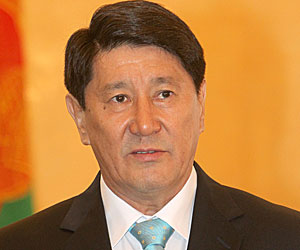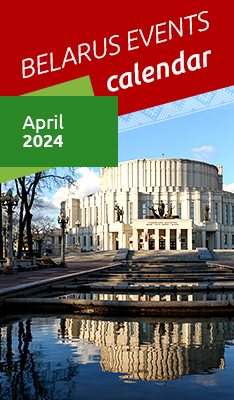Opinions & Interviews
Bolegenov: Stability of Belarus and Kazakhstan relies on interethnic accord and tolerance

MINSK, 3 December (BelTA) – Interethnic accord and tolerance secure the stability of Belarus and Kazakhstan. The opinion was voiced by Ambassador Extraordinary and Plenipotentiary of Kazakhstan to Belarus, Resident Representative of Kazakhstan in chartered CIS bodies and other ones Ergaly Bolegenov at the roundtable session, which was held in Minsk on 3 December to discuss the experience, problems and prospects of interethnic accord and tolerance in Kazakhstan and Belarus, BelTA has learned.
The diplomat said that interethnic accord and tolerance secure the stability and the multinationality of the society in countries like Belarus and Kazakhstan. Unlike many other USSR republics the two countries have managed to preserve peace, stability, and accord in the society, said Ergaly Bolegenov.
According to the Ambassador, the Kazakh policy on interethnic relations is built in strict compliance with international standards on human rights. Kazakhstan has acceded to over 160 fundamental international law documents in this area. Kazakhstan has created various legal and public mechanisms for intercultural dialogue. The most important one is the Assembly of People of Kazakhstan. It was established in 1995. The Ambassador remarked that the Assembly had become a unique key element of the country's political system. It has acquired constitutional status and representation in the parliament. Decisions of the Assembly have to be considered by government agencies and officials. “The fact that the Kazakhstan president is the president of the Assembly testifies that all the prerequisites for the successful development of the ethnic sphere have been created in the country. The Assembly is part of our national legacy. It is an original and unique institution that has evolved into an instrument to implement the ethnic policy of the state. The policy is based on the principle of equality of all citizens regardless of their ethnicity and faith,” said the diplomat. He went on saying that the full-fledged operation of the Assembly allows separating ethnic problems from closely intertwined political, economic, social ones and dealing with them.
“We know that Belarus fully shares the principles and perceptions regarding the need for interethnic accord and strong ethnical and interreligious tolerance and promotes a similar policy,” said the Ambassador. He also mentioned connections between the problems of interethnic accord and the integration processes that the countries are involved in. Belarus, Kazakhstan, and Russia now work together in conditions of the Customs Union, making the Single Economic Space stronger, and building new integration associations. “Creating the Eurasian Economic Union of equal and independent states is the closest goal. As the integration of our countries grows deeper, the matter of preserving and reinforcing interethnic accord becomes more and more important for all the sides. Therefore, we should study each other’s experience in this area,” believes Ergaly Bolegenov.
In turn, Director of the Sociology Institute of the National Academy of Sciences of Belarus, Doctor of Sociology, Professor Igor Kotlyarov said he believes that a unique model of interethnic accord is being implemented in Kazakhstan — the Assembly of People of Kazakhstan. He remarked that conflicts arising from religious grounds are frequent in the modern world but in Belarus and Kazakhstan they have been dealt with at the top level although different approaches were used. This is why, Igor Kotlyarov believes, the two countries could share experience for the sake of avoiding similar problems in the future. Apart from that, Belarus and Kazakhstan can rely on special paradigms of intercultural dialogue that help find new forms of cooperation.
“American sociologists state that Kazakhstan is a land of peace and accord. The country is an example for many nations willing to resolve interethnic and interreligious problems,” concluded Igor Kotlyarov.
| Su | Mo | Tu | We | Th | Fr | Sa |
|---|---|---|---|---|---|---|







 print version
print version make home page
make home page add to bookmarks
add to bookmarks

